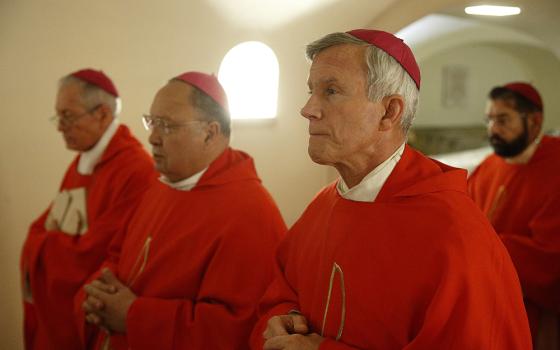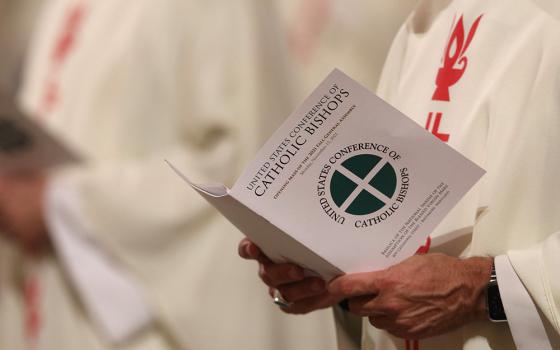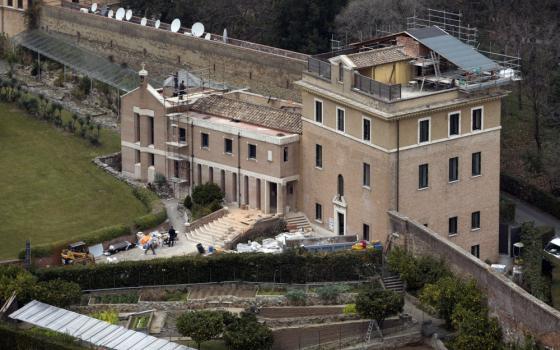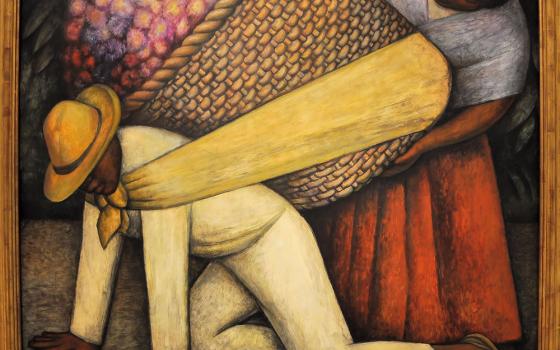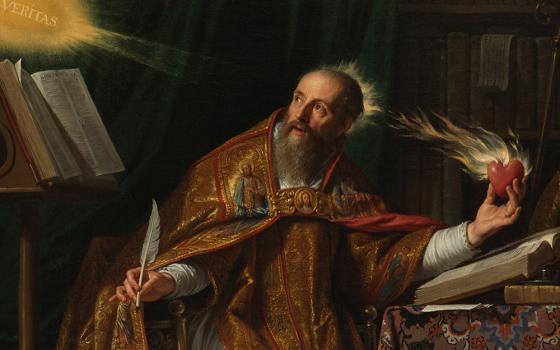
(Dreamstime/Madartists)
I will admit to pinching myself over Pope Francis' recent correspondence with New Ways Ministry co-founder Loretto Sr. Jeannine Gramick and New Ways executive director Frank DeBernardo. Francis praised Gramick as "a valiant woman" and said the history of New Ways Ministry "has not been an easy one."
No kidding.
I had the privilege of journeying with Jeannine and Frank through what I now wryly think of as "the burning times." "Burning" because had the Congregation for the Doctrine of the Faith — formerly known as the Holy Office of the Inquisition — still employed the disciplinary tactics of yore, all three of us would be toast.
If you think I exaggerate, consider that barely a year into his papacy — in a grim harbinger of things to come — Pope John Paul II censured the influential theologian Fr. Hans Küng. In ensuing years the Congregation for the Doctrine of the Faith, doctrinal committees of episcopal conferences, and individual bishops issued notifications, censures, statements and apostolic visitations of progressive bishops (such as Seattle's Raymond Hunthausen) and nearly every U.S. order of women religious.
This pretty much squelched official dialogue about some of the most pressing issues facing the church, including the human rights of gay Catholics, women's ministerial equality, sexual ethics, war and peace, and religious pluralism.
But since you can't quench the Spirit (1 Thessalonians 5:19), unofficial dialogue continued unabated — sometimes at a fever pitch — among Catholic lay leaders, sisters and more than a few priests. The scandal of clergy sex abuse accelerated calls for reform.
But it is still surreal to watch unfold what I fervently hope is a new moment in Catholicism. It is a long awaited, richly deserved moment.
Gramick suffered greatly for her graceful, gritty perseverance helping LGBTQ+ Catholics come to an adult faith, celebrate the gift of their sexual orientation, and follow their consciences about how to live that gift each day. Her ministry was preceded, and in many ways inspired, by Dignity, an organization founded in 1969 to provide for the sacramental needs and spiritual development of gay Catholics.
Even though the provincial generals of her former religious community, the School Sisters of Notre Dame, had strongly supported Gramick for more than 20 years, in 1999 the Vatican pressured them to dismiss her if she refused to abide by an order from the Congregation for the Doctrine of the Faith to cease ministering to gay Catholics. The politics were such that she painfully chose to switch religious orders to continue her calling: "I needed to continue to advocate for [LGBT people] because they had no advocate in the institutional church," she recently told America magazine.
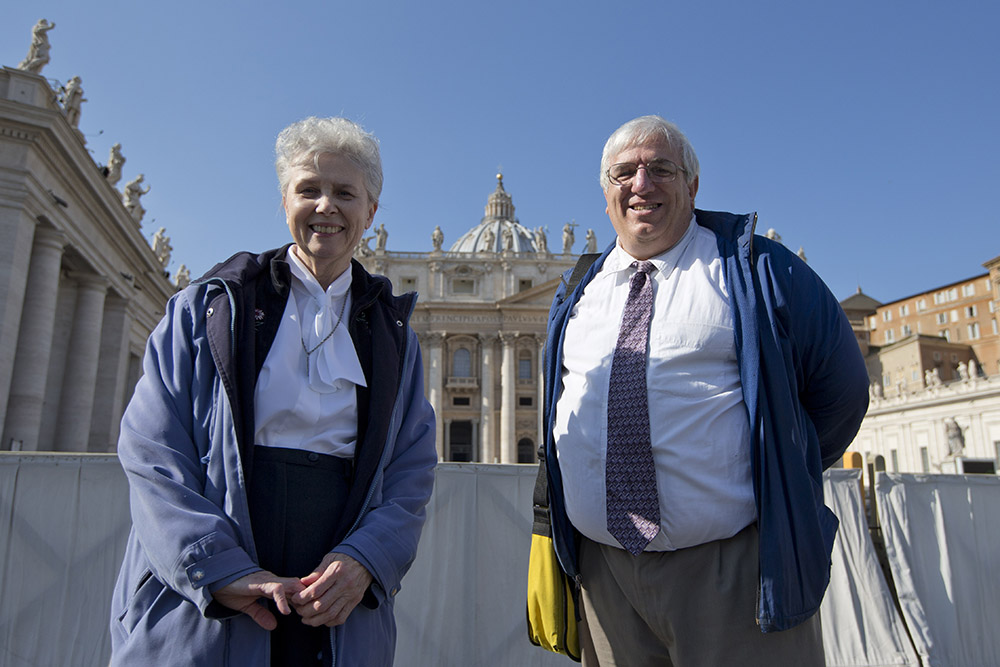
Loretto Sr. Jeannine Gramick and Frank DeBernardo, executive director of New Ways Ministry, at the Vatican in 2015 (AP/Andrew Medichini)
In the same interview, Gramick described herself feeling like a "battered woman" after the then-archbishop of Washington, Cardinal James Hickey, asked Vatican officials to pressure her religious superiors to remove her from ministry.
Catholics across the country watched in dismay as churchmen forced Jeannine's leadership into the proverbial "rock and a hard place" of both supporting their prophetic sister and maintaining a relationship with an increasingly autocratic church.
This pattern would repeat itself both publicly and privately. Consider Erie Benedictine Sr. Christine Vladimirov's refusal to silence Sr. Joan Chittister; attacks on the theology of St. Joseph Sr. Elizabeth Johnson; and the quiet behind-the-scenes support of my own Sisters of St. Joseph superiors in the face of assorted veiled and not-so-veiled threats from various bishops. One even had the temerity to demand that Rome order my superiors to forbid me to speak in a public park located in his archdiocese. That's how crazy things got.
During this repressive time, my community hosted a prayer service I had planned for Gramick at our Cleveland motherhouse. Over 150 Clevelanders arrived to pray, to learn and to offer support. We heard Chuck Lathrop's powerful poem "A Gentle Presence" inviting us to work as Jesus did "in poverty and under oppression" and to live the Gospel from the point of view of the world's victims. Lathrop's poetry, published in the ritual resource More Than Words, resonated deeply. Such obedience to God, he wrote, would be "a threat to any political or cultural status quo. The ramifications are many, the cost is high."
The unfolding drama of prophetic nuns vs. autocratic church decisionmakers reached its nadir with the ill-fated 2009 apostolic visitation and doctrinal investigation of U.S. communities of women religious. By then, most communities had become all too familiar with coercive clerical tactics — but we were also becoming wiser about managing them. We discovered anew the power of nonviolent resistance and contemplation.
As one sister leader reflected in Power of Sisterhood: Women Religious Tell the Story of the Apostolic Visitation: "This peaceful, nonviolent stand [resisting] institutional violence against women was a turning point in the relationship of the church and women."
In the same book, Sr. Mary Ann Zollman, a member of the Sisters of Charity of the Blessed Virgin Mary and a former president of LCWR, wrote: "For us women religious, our entire individual and collective story has been one of setting our hearts on God. ... Awake to the Spirit of God laboring in us, we understand our sisterhood as a relationship of love with all that is."
Advertisement
Such Spirit-powered nonviolent resistance and cultivation of a "relationship of love" truly describes Jeannine's approach to her own ministry. It came to include even Cardinal Joseph Ratzinger, the man who censured her and New Ways co-founder Fr. Robert Nugent.
"Cardinal Ratzinger is way out there on one branch, and I am way out there on a branch probably 180 degrees around that tree," Jeannine told America magazine. "[But] we have a common faith in Christ, and that's what draws us together. We're all around that tree somewhere. I love Cardinal Ratzinger, Pope Benedict. I think he's a holy man. I really do."
That New Ways leadership succeeded in establishing private relationships with Hickey's successors, including the current archbishop, Cardinal Wilton Gregory, speaks volumes about how deeply committed the organization is to a dialogic approach in pursuing its mission.
In nearly 32 years of working for church reform, I have experienced many approaches to dealing with the institutional church. Some simply leave and never return. Others view dialogue with clerical leaders as a colossal waste of time. But New Ways Ministry works relentlessly to connect with church officials at every level, even though more than a few prefer to silence them.
Jeannine refused to be silenced.
In September 2000 — barely a year after the Vatican censure — she gave a formal presentation on "The Place of Silencing in the Teaching of the Church," at Haverford College in Philadelphia. After reviewing church teaching on human dignity, justice to persons and in society, and the right to express dissenting views, she explained the importance of free expression in the life of the church: "Therefore, everyone's reflection, not just that of the bishops or theologians, is essential to discern where the Spirit is leading the church. ... The experience of all, especially marginalized groups of people, must be included."
As I write, Pope Francis is inviting Catholics all over the world to share their own experiences of church in preparation for the 2023 synod on synodality. Francis deeply believes that the Holy Spirit, at work in the people of God, will guide the church into the future.
If we are to ever emerge from deeply entrenched ecclesiastical polarization, it will be through open dialogue, respect for differences and the kind of nonviolent love that makes true discernment possible — the kind of nonviolent love practiced by Jeannine Gramick, Frank DeBernardo and so many LGBTQ+ Catholics at both Dignity and New Ways who refuse to give up on a church that too often appears to have given up on them.

